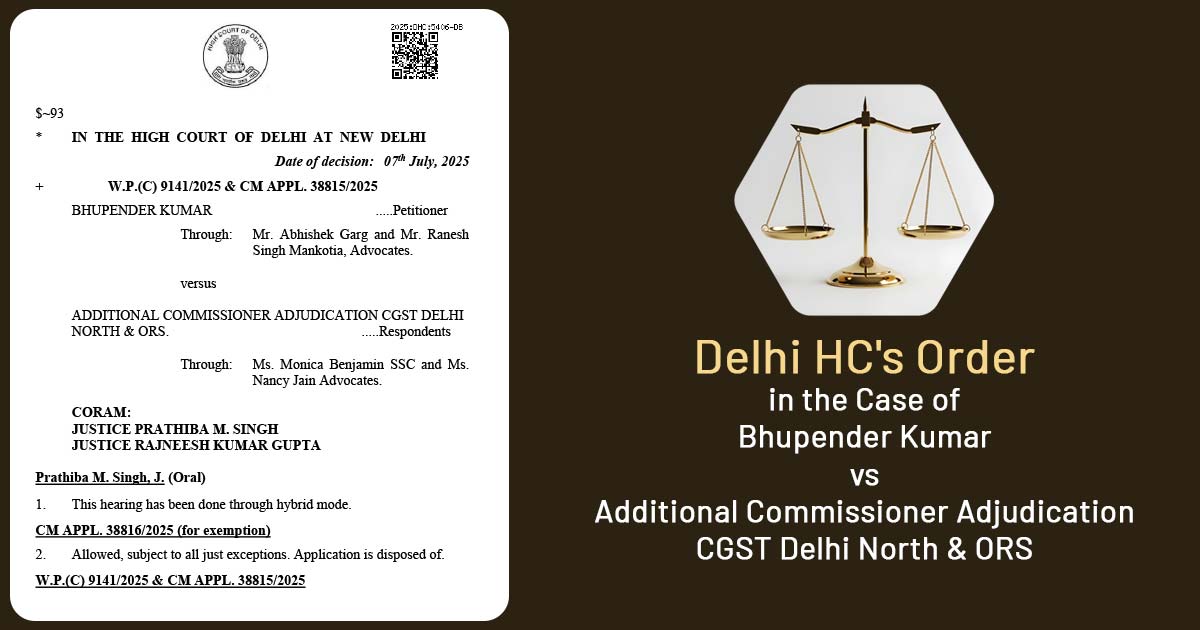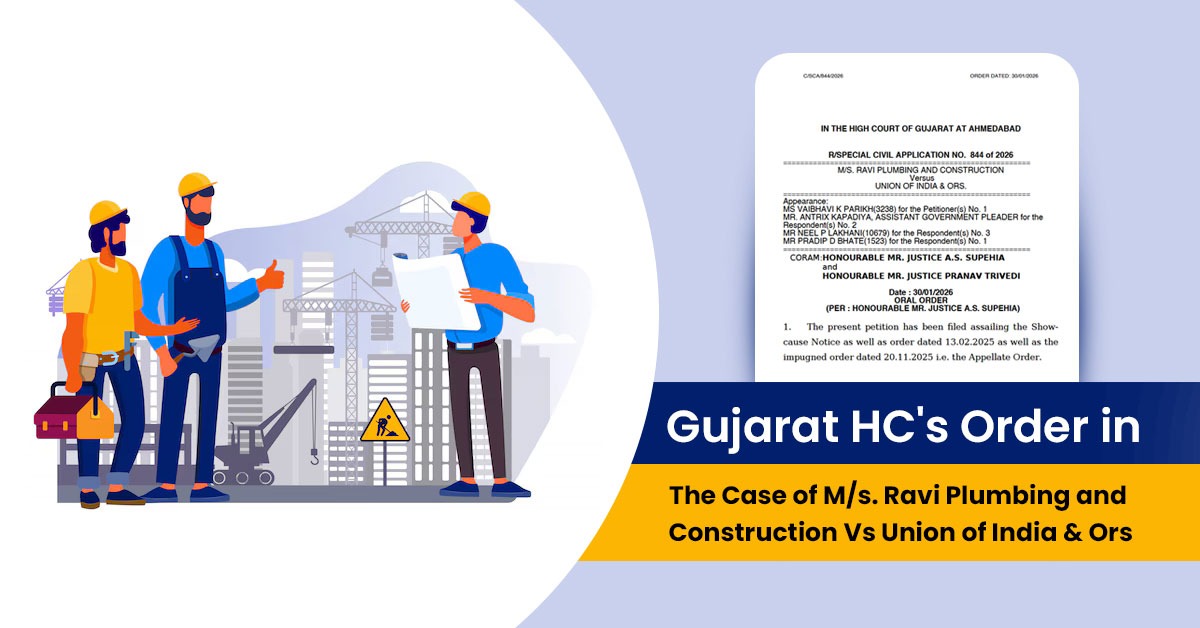
The Delhi High Court held that Section 122(1A) of the Goods and Services Tax Act, 2017, can be applied retrospectively, provided that a show cause notice had been issued to the taxpayer when the provision was introduced.
Section 122 contemplates penalties for offences under the GST Act, along with the bogus claim of ITC.
The Finance Act 2020 introduces Section 122(1A) that comes into force from 1st January 2021. It specifies that any person who has the advantage of incorrectly claiming the ITC, etc, and at whose instance the same transaction is performed will be obligated to penalty.
A division bench of Justices Prathiba M. Singh and Rajneesh Kumar Gupta cited that,
Read Also: GST SCN Valid Even If Verification Report Is Unshared, Madras HC Orders Dept to Furnish Report
“In so far as the retrospective application of Section 122(1A) of CGST Act is concerned, the same would be governed by the date of the SCN…The law has been clearly amended to also implicate such individuals who may be involved in such fraudulent transactions and the said law cannot be set at naught by holding the same to not be retrospectively applicable to transactions which took place prior to the date when the law was enacted.”
In this case, a Show Cause Notice (SCN) was issued on March 8, 2024, following the enactment of Section 122(1A). This notice addresses the fraudulent availing of a significant amount of Input Tax Credit (ITC), totalling Rs. 28,566,26,459, obtained through 54 firms created by Sanjay Sehgal and his associates.
The applicant in this case was involved as a GST consultant by Sehgal.
Applicant said that he was just a consultant, retained at a commission of ₹10,000 to ₹15,000, which comprises benefits made from the incorporation of these bogus firms and passing fake ITC.
He said there was no issuance of notice before him u/s 122(1A) and therefore, no penalty can have been levied. On M/s Samsung India Electronics Private Limited v. State of U.P. & Ors. Reliance was placed to claim that if the SCN does not have an allegation, then the final order could not be passed on a foundation not held in the SCN.
Section 122(1A) cannot have been invoked for any transactions before the said provision was enacted, i.e., it cannot be made retrospectively applicable.
Delhi High Court observed that the applicant was aware of the making of bogus firms.
“The Petitioner was thus fully aware and enabled the creation of these fake firms and was aware that ITC was being fraudulently availed of. The Petitioner, being a GST consultant who was also earlier working with the Delhi GST Department has clearly made use of his knowledge and assisted Mr. Sehgal in setting up these fake firms. The structuring of these firms, the manner in which the transactions have to be done, are all issues in which the Petitioner would have clearly had a role to play, as much as he was a GST consultant,” the Court ruled, denying the appeal of the applicant that he was a mere consultant.
In the issued SCN before the applicant, Section 122 of the CGST Act was mentioned, and “Section 122(1A) of the CGST Act would be covered in the broader provision”.
| Case Title | Bhupender Kumar vs Additional Commissioner Adjudication CGST Delhi North & ORS |
| Case No. | W.P.(C) 9141/2025 & CM APPL. 38815/2025 |
| For Petitioner | Mr. Abhishek Garg and Mr. Ranesh Singh Mankotia |
| For Respondent | Ms. Monica Benjamin and Ms. Nancy Jain |
| Delhi High Court | Read Order |









